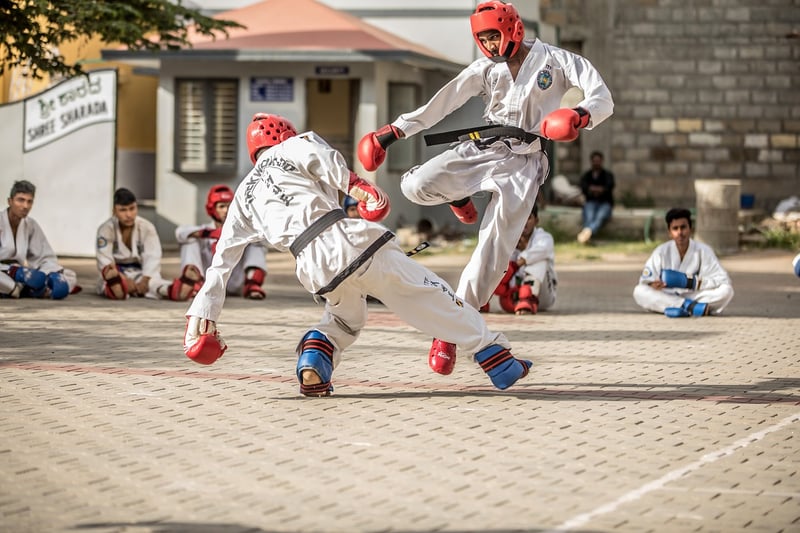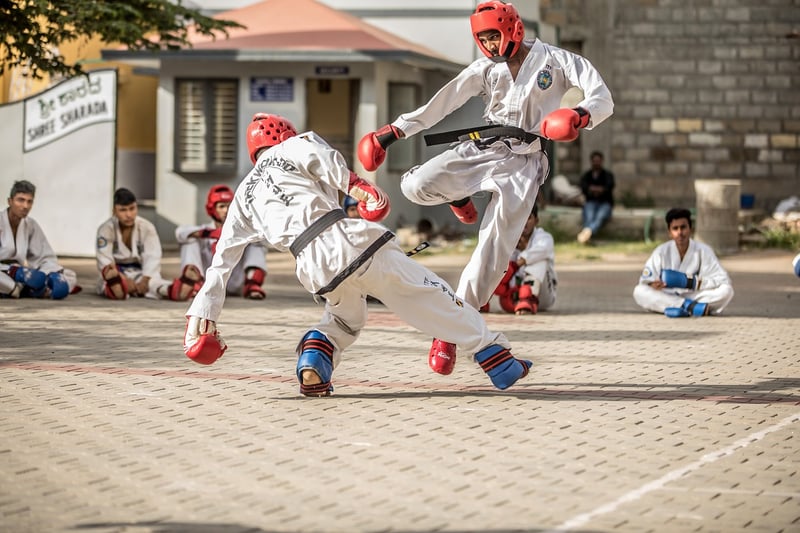Taekwondo
The Importance of Discipline and Self-Defense in Martial Arts, with a Focus on Taekwondo
Martial arts are not just about physical techniques; they also emphasize mental discipline, self-control, and self-defense skills. Among the various martial arts disciplines, Taekwondo stands out for its focus on both the physical and mental aspects of training. In this article, we will explore the significance of discipline and self-defense in martial arts, with a specific emphasis on Taekwondo.
The Role of Discipline in Martial Arts
Discipline is a core principle in martial arts training. Practitioners are expected to adhere to strict training regimens, show respect to their instructors and fellow students, and maintain a high level of focus during practice. This discipline extends beyond the training hall and into everyday life, helping practitioners develop self-control, perseverance, and a strong work ethic.
Through disciplined practice, martial artists learn to set and achieve goals, overcome obstacles, and push past their limits. This mindset not only benefits their martial arts skills but also translates into other areas of their lives, such as academics, career, and personal relationships.
The Significance of Self-Defense Skills
Self-defense is a crucial aspect of martial arts training, providing practitioners with the ability to protect themselves in real-life situations. In addition to physical techniques, self-defense training focuses on situational awareness, threat assessment, and de-escalation strategies.
Learning self-defense skills empowers individuals to feel more confident and secure in their daily lives. It also instills a sense of responsibility, as practitioners understand the importance of using their skills judiciously and only as a last resort.
Taekwondo: A Blend of Discipline and Self-Defense
Taekwondo, a Korean martial art known for its dynamic kicking techniques and emphasis on speed and agility, embodies the principles of discipline and self-defense. Practitioners of Taekwondo undergo rigorous training to develop physical strength, flexibility, and coordination, all while cultivating mental fortitude and self-control.
With its roots in traditional Korean martial arts, Taekwondo places a strong emphasis on respect for oneself and others, as well as the importance of perseverance and indomitable spirit. In addition to learning powerful strikes and blocks, Taekwondo practitioners are taught to use their skills responsibly and ethically.
Conclusion
In conclusion, discipline and self-defense are integral aspects of martial arts training, with Taekwondo serving as a prime example of a discipline that combines physical prowess with mental resilience. By honing their skills in a disciplined manner and learning the art of self-defense, martial artists not only improve their physical abilities but also develop valuable life skills that benefit them in all aspects of life.

